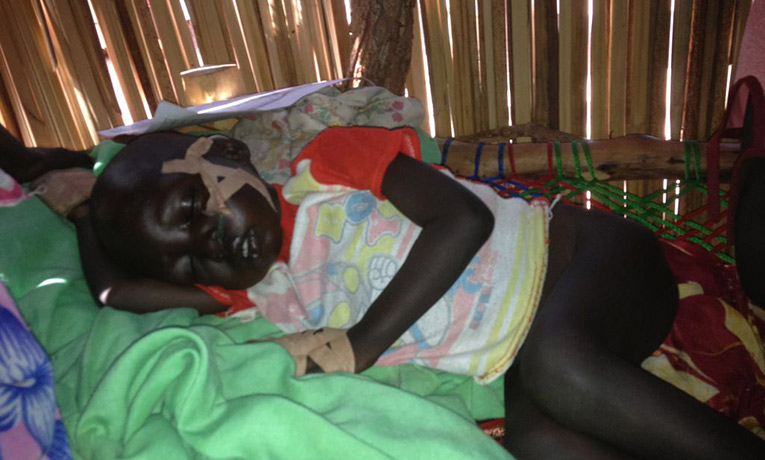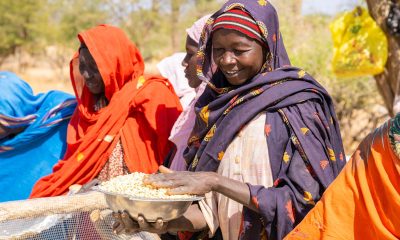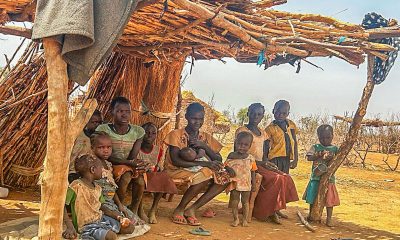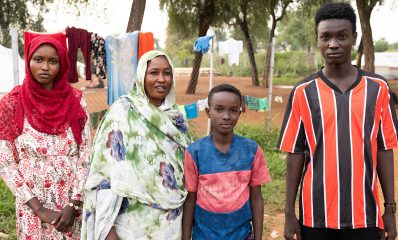Families that face starvation as they try to escape the violence in Sudan are finding help at camps where Samaritan's Purse is operating
Nazifa and her 10 children walked for a week before arriving at the refugee camp in Yida, South Sudan.
They are among the thousands fleeing the violence in the Sudanese states of South Kordofan and Blue Nile, targeted by their own government.
Her 4-year-old daughter, Waida, weighed only 14 pounds when the family arrived at Yida. She became one of the dozens of patients at the Samaritan’s Purse stabilization center for severely malnourished children, where we are providing 24-hour care for boys and girls who are on the brink of starvation.
We opened the center in October. The number of patients increased steadily before spiking over the past two months. Forty-four children were admitted one day in early June, the highest number yet. That night’s bed count was 73, also a new record.
Nazifa said that Waida has been sick with vomiting and diarrhea for over a month. She had nothing to eat because their village in Sudan has no food. Some people were forced to eat leaves, or the remainder of their sorghum seed if they had any.
People have been unable to cultivate crops because of aerial bombardment by the Sudan Armed Forces. Nazifa said people were always running for protection from the bombing, causing widespread famine in their village.
Those fleeing the violence are walking without food or water, and people are dying along the way.
Thousands are arriving at the camps in Yida and Doro—where Samaritan’s Purse also is helping—seeking refuge. In addition to working with malnourished children, our staff is distributing weekly food rations. In June, we provided food for over 55,000 people and about 2,500 pregnant and lactating women at the two camps.
We also are doing health and hygiene training, and our staff is working to transport water, sanitation and hygiene items—soap, jerry cans, and mosquito nets—to families. We have been driving the supplies in, but soon the roads will be impassable due to heavy rains and we will need to airlift supplies.
In addition to feeding tens of thousands of people and providing clean water and other necessary supplies, doctors are performing surgeries at our hospital in Doro, which has over 90 patients.
But the most urgent need remains food for the hungry people who arrive at the camps daily.
They are people like Shomalia and her children, who lived in a cave in the Nuba Mountains in Sudan for a year before leaving for Yida.
“The bombing is serious,” she said. “There is no food. There is nothing.”
Shomalia said she and her four children lived off leaves and tree bark in the mountains for many months. It took a week to reach Yida on foot, but they were not able to bring anything with them because everything they owned had been burned. Her 3-year-old daughter, Manas, weighs 10 pounds and is also a patient in the Samaritan’s Purse stabilization center.
Hallem, a mother of seven children, was also at the clinic with her 3-year-old son, Kamis Kafi. He had a nasal-gastric tube running though his nose and each hand was taped down on a flat board so that he could not take it out. Kamis cannot take food through his mouth, and milk formula is pumped through the tube into his stomach.
Hallem left Sudan because of the famine and the bombing and came to Yida seeking food and protection. She said she saw five people die of starvation on the journey, and two more died from eating the leaves from a bad tree. She will not go home until peace comes again.
As much as they have suffered, the refugees remember those they left behind, whose suffering is now greater than theirs.
“People are hurting in Nuba,” Shomalia said. “They are scattered and suffering because of war. Can someone help them?”






